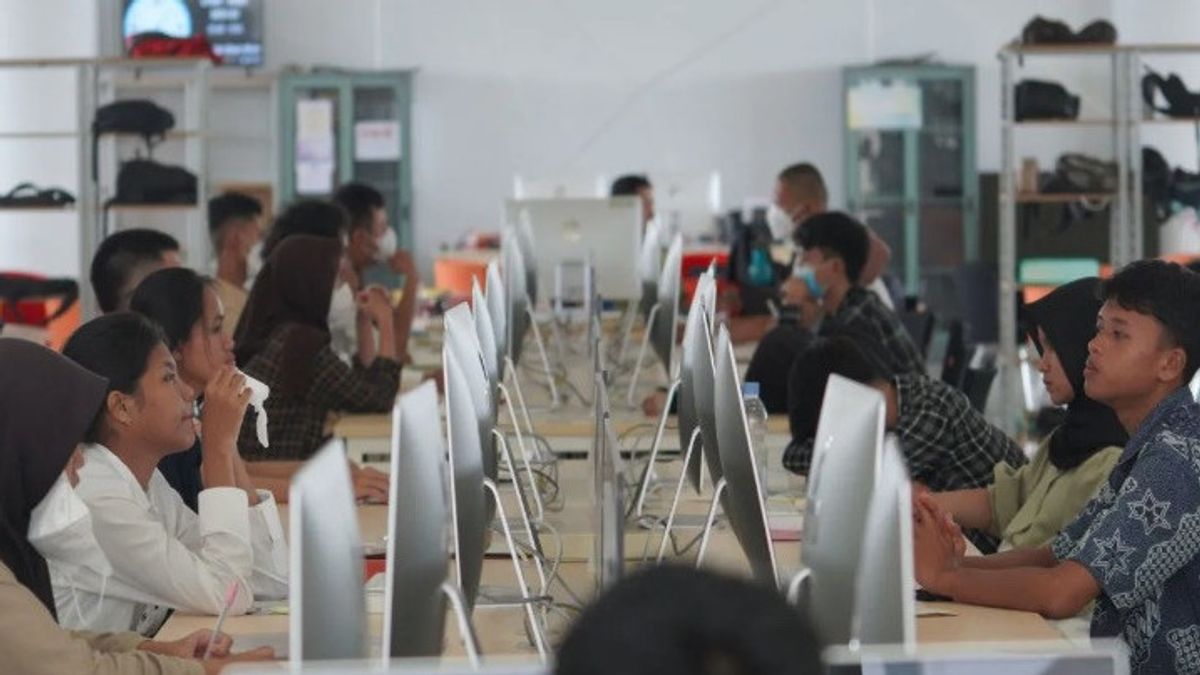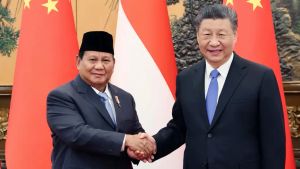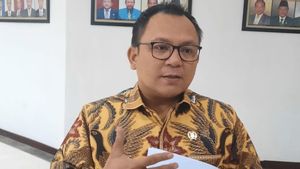JAKARTA The discourse of the return of the National Examination or UN is of concern to the public. The pros and cons sounds seem to have become commonplace in responding to a policy. Re-imposing UN as a graduation requirement, said the observer, means that the world of education has experienced a setback.
The news about the return of the UN was first blown by the Minister of Basic and Secondary Education Abdul Mu'ti. He gave a signal that UN would be again given in the 2025/2026 school year.
However, until now Abdul Mu'ti said that he did not know what format would be used if the UN was actually enforced.
Even though they haven't hit the hammer yet, people are already noisy. Many do not agree with the return of the UN, especially if this is used as a condition for student graduation.
However, those who are excited to welcome this news are no less numerous. There are things behind those who are pros and pros with the return of this UN, including to improve the quality of Indonesian education.
In recent weeks, netizens have been shocked by a number of videos showing how students in high school do not understand multiplication, another video shows how junior high school students cannot read analog hours.
Not only ordinary citizens, but activists, teachers' professional groups, and organizations who pay attention to the education sector claim to be concerned about this condition. Many consider the inability of a number of students to solve multiplicative questions because the Indonesian education system is still in disarray.
The public also highlighted that the UN was officially abolished by the government starting from the 2021 school year, to be replaced by the National Assessment. This assessment is no longer used as a graduation determinant, but to measure the quality of education through the Minimum Competency Assessment (AKM), character surveys, and learning environment surveys.
UN was first introduced in 2005 by the then Minister of Education, Muhammad Nuh, to replace the National Final Test (UAN). This test is also a graduation requirement.
In 2013, the government began implementing Computer-Based National Exams (UNBK) in several schools, which Anies Baswedan introduced as minister of education at the time. Three years later, Anies emphasized that UN would no longer be the determining factor for graduation starting 2015. Student graduation is determined by schools through teacher council meetings or teacher plenaries.
In 2019 the Minister of Education and Culture Nadiem Makarim announced that he would remove UN in 2021 and replace the National Assessment.
Netizens also suspect that what happened to a number of students who do not understand multiplication, for example, because there is no UN. They said these students no longer had a kind of target, so they relaxed their learning, because there was no requirement to graduate and continue their education to the next level.
BACA JUGA:
So when the UN discourse will be returned starting the 2025/2026 school year, many welcome the joy of this news. PGRI Secretary General Dudung Abdul Qadir assessed that UN functions as a tool for equitable education. He also said that the results of the UN can be used as an evaluation of the weaknesses of the education system in an area.
"UN is a mechanism to find out the success of every education unit and individual student, so teachers and schools are motivated to improve the quality of services in schools," he said.
Nevertheless, Dudung underlined that UN should not be the absolute determinant of student graduation. He also suggested that the subjects tested could be adjusted to students' interests and talents, focusing on literacy and numeracy measurements.
However, the Head of the Advocacy Division of the Education and Teacher Association or P2G, Iman Zanatul Haeri emphasized that the Ministry of Education should not be careless about reviving UN. Before the UN was re-planned, Iman considered that there were several things that the Ministry of Education and Culture had to consider.
First, the standard assessment for students held must be clear about the objectives, functions, budgets for financing, membership, instruments, technical descriptions, and impacts.
Another thing that needs to be considered, said Iman, is the assessment criteria for students who aim to evaluate the education system, namely the assessment is designed according to the goals of the education system, the assessment is low-stake, aka no risk whatsoever to students' academic achievements.
"If UN is used as determinant of student graduation, this must clearly be rejected. Because it is high-stakestesting for students," said Iman in a statement received by VOI.
Second, the UN function in the past mixed the function of the sumative assessment for students, formatif for schools, and even used as a means of selecting students to the level of education above it in the PPDB process which used the UN value. The UN value is listed behind the diploma as a form of certification of student learning achievements.
"UN in the past was very unfair, only cognitively oriented, distorted the education process itself, and divided which subjects were important and which were not," continued Iman.
Third, in the era of Anies Baswedan and Muhajir Effendi as Minister of Education and Culture, as previously mentioned, UN is still being held but no longer determines graduation.
Iman continued, if the National Examination that will be returned by the Minister of Education and Culture Abdul Mu'ti like the era of the Minister of Education and Culture Muhajir, this could be implemented. But it must be clear that the goals, functions, schemes, budgets, participation, instruments, technical implementation, and impacts must be clear
"Is the test subject based on subjects, anything? Four subjects for Mathematics, English, Indonesian and selected subjects for SMA/SMK/MA? Or is it all the lessons that are subject to?" asked Iman.
The English, Chinese, Japanese, Arabic, and French versions are automatically generated by the AI. So there may still be inaccuracies in translating, please always see Indonesian as our main language. (system supported by DigitalSiber.id)














